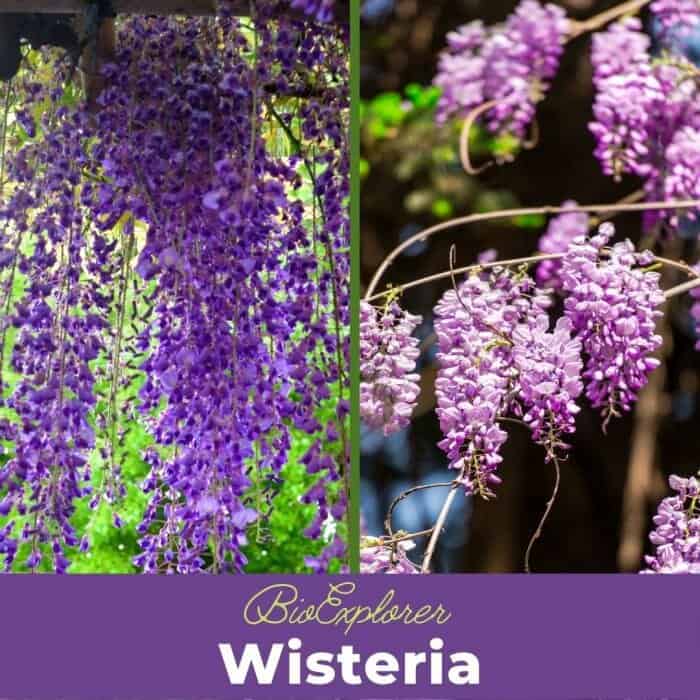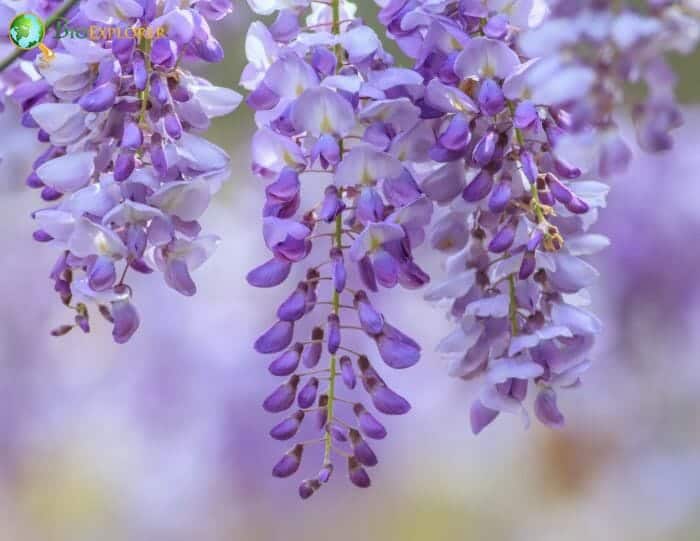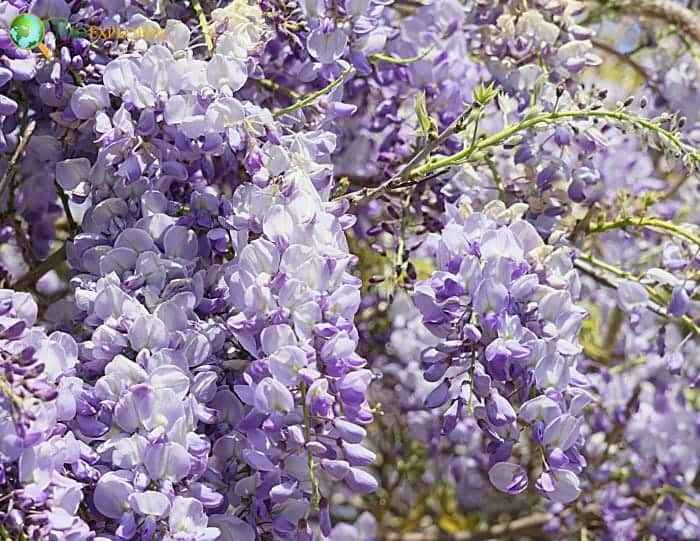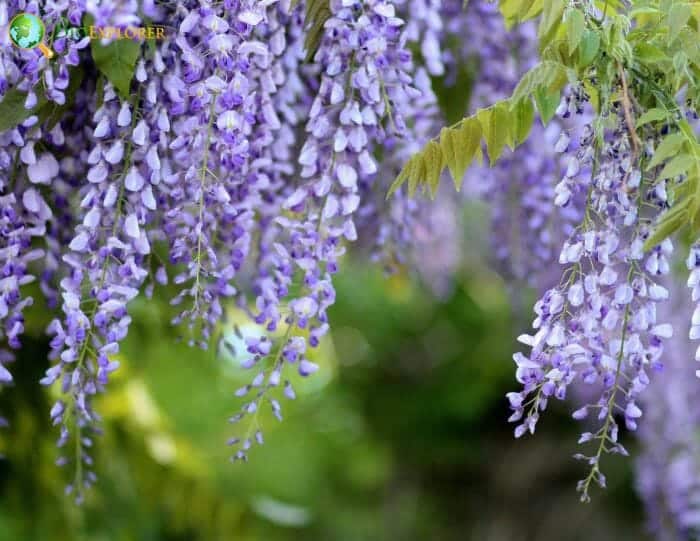Wisteria

| Kingdom | Order | Family | Genus | Species |
|---|---|---|---|---|
| Plantae | Fabales | Fabaceae | Wisteria | Wisteria floribunda |
- Common Name: Japanese Wisteria.
- Plant type: Deciduous, woody climber.
- Flower Dimensions: Individual flower is 0.5 to 0.75-inch[1] long.
- Color: Violet to violet-blue, pink, white.
- Flowering Season: Late spring or early summer (mid-April to mid-May).
- Places in Japan with Japanese Wisteria: Kawachi Fujien Wisteria Garden, Ashikaga Flower Park, Mandaraji Temple, Byakugou-ji Temple, Kameido Tenjin Shrine, Tennogawa Park, Shirai Omachi Fuji Park.

The Japanese Wisteria is a beautiful, deciduous climber with a height of 10 to 30 feet and a spread of 10-20 feet. It is native to temperate Asia, Japan.

- Japanese Wisteria is a long-lived climber. Therefore, the direction of the twining in the axis is clockwise.
- The Wisteria flowers drape down from the vines. The tress of flowers is up to 50 cm in length. There are up to 1oo flowers per tress.
- The dense, attractive foliage consists of 15 leaflets that become yellow during fall.
- Japanese Wisteria needs regular pruning to promote flowering and control the plant’s shape and size.
- The Wisteria plant is toxic to humans and pets.

Interesting Facts about Japanese Wisteria
- This perennial plant has a life span of 50 to 100 years or even longer.
- Japanese Wisteria[2] is a symbol of immortality and long life.
- The pink Wisteria is often used at the wedding because it symbolizes romance.
- The Japanese Wisteria is associated with nobility because, in the past, the commoners were not allowed to wear the purple color[3].
- The practitioners of feng shui plant Wisteria in the quadrant because the eloquent falling of the wisteria blossoms signifies honor and respect.
Suggested Reading: Flower Types
Cite this page
Bio Explorer. (2026, January 28). Wisteria. https://www.bioexplorer.net/plants/flowers/wisteria/
